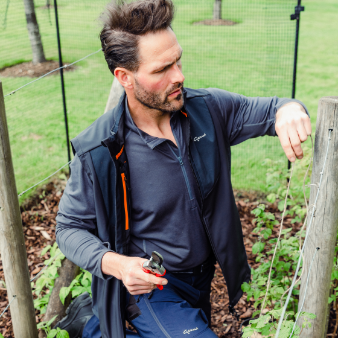Body, soul and gardening - beating air pollution

As well as being beautiful and relaxing, gardens can also shield us against air pollution from fossil fuels and petrol that damage our health. According to the World Health Organisation, 90% of the world’s population breathe polluted air, which can cause health problems including respiratory diseases and cancer. Plants can trap the pollutant particles on their leaves, improving air quality.
Planting layers of hedging, which is better at trapping pollution than fencing, trees and herbaceous perennials can create a barrier against pollutants. Some hedging species are more effective than others. Yew, with its large surface area of needle-like foliage or Berberis thunbergii, which has a dense structure of tiny leaves, can gather more airborne particles than less dense species like photinia. The waxy cuticle layer on holly traps particles, as do the ridges on the uneven leaves of hawthorn and hornbeam.
When it comes to trees, London planes famously shed pollutants in its peeling bark. But for average sized gardens, silver birch and acers are a good choices and Ginkgo biloba has excellent CO2 and pollutant cleaning qualities.
In terms of smaller shrubs, mini pollution busters include box, lavender, rosemary and hebe. Plants with hairy or rough leaves such as Stachys byzantina (lamb’s ears) or Alchemilla mollis are good for trapping particles, as is Erysimum ‘Bowles’s Mauve’. It also helps to cover walls with climbers, in particular ivy - a study showed that a one square metre of ivy grown alongside a busy road is likely to remove 145 million particulates a day. So here’s yet another consideration when designing your garden - do the wonders of plants never cease?







